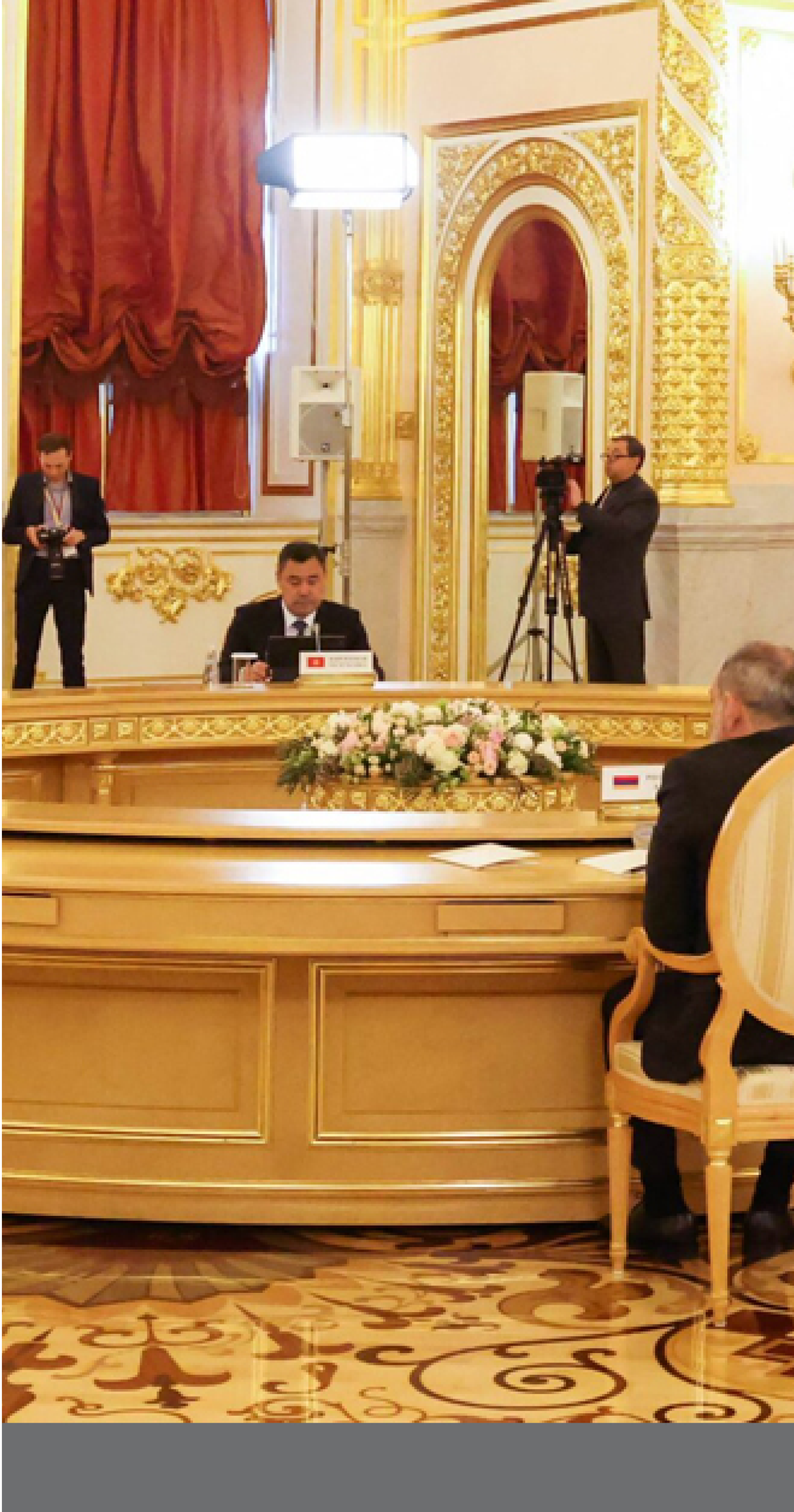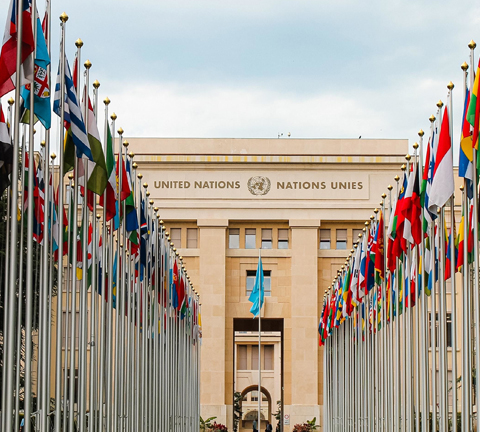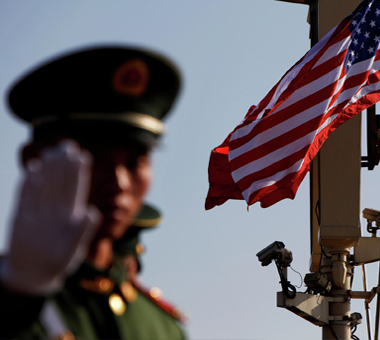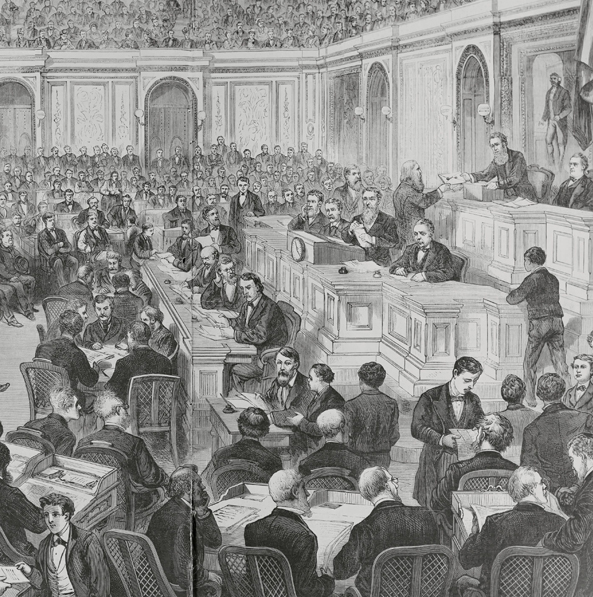It's been many years since I read Francis Fukuyama's two books in which he discusses the origins of political order; however, I never had the opportunity to discuss their content. Recently, Fukuyama, the American political theorist, wrote a new article published by Foreign Affairs titled “The Pandemic and Political Order. It Takes a State”, which clearly shows the change of his ideological approach. Today, the researcher, who hit fame once when he predicted the collapse of the Soviet Union and the communist system and said that liberal democracy and Western capitalism, in which the state plays only a small role in organization and control, is the end of history and the finest human development will reach, sees that the state is indispensable in facing the virus, the response of civil society, no matter how large, will not amount to the response of states, and that the performance of governments will have a great impact on the future of the global distribution of power - after the pandemic.
I sensed a change in Fukuyama’s position; thus, I went back to his two books, in which he returned to the origins for the hope of finding the reasons that might push the liberal democratic regimes to retreat and regression to personal or tyrannical systems, which falsified his theory on the “end of history.”
What distinguishes Fukuyama from other political theorists in that he does work in politics, thus he has never lacked the flexibility that allows him to always put his ideas under review, reassessment, and even change. The professor of international relations at Stanford looks into a theory of political development independent of economics. In order to achieve that, he discussed his ideas in two volumes: The first of is titled “The Origins of Political Order: From prehuman times to the French Revolution” published in 2011, and the second is titled “Political Order and Political Decay: From the Industrial Revolution to the Globalization of Democracy” in 2014.
Fukuyama’s first book relied on two sources, the first was Samuel Huntington’s “Political Order in Changing Societies” published in 1968, which was in urgent need for update despite the fact that the both theorists do not have much different opinions, and almost reached the same results. However, major events followed Huntington’s book, such as the collapse of the communist system, the rise of East Asia as an economic power, and the collapse of global communism.
The second source was “the set of problems that weak and failed states face in building their structures on the ground.” Therefore, the author took a comparative approach to find out the factors that led to the emergence of a political system in a certain society but not another, based on knowledge materials outside his specialization, including anthropology, biology, and archeology. He also mentions the distinctive quality of each region he studied in terms of its social nature and geographical position, then defends his view that the development of human societies depends on their struggle and adaptation to the surrounding environment.
Fukuyama follows in the footsteps of the first teacher, Aristotle, and considers the human being a social and political being by nature. Therefore, the first human societies were established on the innate tendency towards kinships, and fighting against the harm surrounding them. Accordingly, the author criticizes the accusations of religion as a source of violence and discord, and even considers religion one of the sources of social cohesion that provided humans with the means of cooperation within a broader human context. With the development of agriculture in early times, the significant transformation of a political unit from the family to the tribe took place before the emergence of state.
The author depends on Huntington’s notion that the process of political development is completely independent of economic and social growth. Therefore, the components of the political system are three institutions: The state, the rule of law, and the accountable government. Hence, the existence of these institutions, or the absence of some of them, is what distinguishes states from one another. However, it is their balanced existence together that creates the liberal democratic state, as Fukuyama called it (getting to Denmark).
In the context of discussing the first institution of a political system (the state), Fukuyama studies some historical patterns. He praises the early Chinese state, which contained many elements of the modern state, as a pioneering model of the development of the governing institutions that appeared before the French Revolution. He also mentions the Indian state that deviated from the right path due to the country’s ruling religious power, and the spirit of tribalism and kinship among the ruling classes. As for the Islamic state, which the Prophet Muhammad (PBUH) laid its foundation, building the state took shape thanks to the development of the military slavery system, in order to break away from tribal control. At the same time, the author does not hide his admiration for the story of the European state that took a different path, where the spirit of individualism prevailed at the expense of the spirit of kinship, thanks to the Catholic Church, which, unintentional weakened the spirit of the tribe.
In the third part of the book, Fukuyama defines law as the abstract theoretical basis of justice, and even mentions the forms of its emergence and development in various parts of the world. Law was best applied in Europe, thanks to its early departure from tribalism, and the hierarchy of the Catholic Church and its bureaucracy, which fully institutionalized its laws. In ancient China, however, the law was what the emperor ordered and decided. As for the Muslim world, the interference of the religious establishment in the government weakened the state’s control and the social role played by scholars and judges. Therefore, Fukuyama concludes at the end of this part that the rule of law is not necessary for economic growth. For example, the modern People’s Republic of China does not have rule of law in the constitutional sense, but it does have property rights good enough to support extraordinary rates of growth.
At the end of the first volume, the author discusses the third institution of the political system, the accountable government, which means that the rulers believe that they are responsible to the people they govern. In order to understand the success of institutions in Europe, he does not only mention successful examples, but he also describes failed cases as well. Fukuyama identifies four models for building the European state, namely: The weak authoritarian state (Spain and France in the sixteenth century), the successful authoritarian state (Russia), the oligarchic state (Hungary), and finally the accountable government (England and Denmark). He devotes a chapter for each of these examples, detailing the development of their political system, and highlighting their local qualities.
Fukuyama concludes the first half of his huge book with the American and French revolutions, considering that the basic principles of modern government have been laid down sat that time. After that, the task was no longer limited to finding new principles and a higher political order, but rather to implementing them at larger parts of the world as well. Thus, the author prepares for the second part of his book under what he called (political decay).
In the first part of the book, the author tried to provide a complete insight of democracy and its emergence in the world, and described it by presenting examples he considered as failed (African countries), and others successful (Europe). He also presented a comprehensive survey of the history of democracy in the United States, declaring his strong admiration for it for the important lessons it had for contemporary developing countries that want to reform their political systems and establish merit-based governments, as the development of a modern government depends on having sufficient capacity and independence to perform its functions, while remaining accountable and liable in front of democratic citizenship. Therefore, Fukuyama criticizes the prevailing idea that socio-economic modernization and the emergence of a middle class are sufficient element capable of establishing a modern government. This is due to several factors, the most important of which is the quality of economic growth, and the middle class’s lack of awareness of the anti-clientelist reform (the patronage system), as in the cases of Greece and Italy.
Through some of the experiences mentioned in the book, the author shows that building a state is different from building democracy, as there are political systems with effective and strong performance even though they do not have a true form of democracy. In contrast, there are strong democracies in weak and failed states. By tracing the historical paths of democracy around the world, Fukuyama finds that it has gone through three stages: the first from the nineteenth century to the First World War, the second after the Second World War, and the third was in the 1970s.
In the third part of his book, the author compares the situation of Arab countries (by the time of its issuance ) to nineteenth-century Europe, in terms of the lack of democratic prior experience, and the rootedness of the democratization process in the movement led by the socio-economic change of the middle classes. However, the religious politicization - political Islam - present in the Arab region was the main difference between the two experiences. In Europe, class and nationalism as a source of identity were considered more important than religion. Hence, the author concludes that Arab countries have still to go a long way to achieve social and political change towards democracy.
Since flexibility in keeping pace with and accommodating changes is what distinguishes societies, Fukuyama, like his mentor Huntington's, considers that "stability" is a weakness in the countries' political development process and even an indication of its degeneracy. The essence of degeneration occurs through two processes: the failure to adapt to the emergent changes, and the "inheritance" of the political systems in them. The author also adds other factors that lead to decadence, such as external invasion, changing economic or social conditions, and the subsequent corruption followed by an outbreak of clientelism in the ruling administration, something that happens in many countries, including the United States of America.
In light of the foregoing, Fukuyama’s “Deified" view of American policy has given way to the Danish model, thus, he has become more logical in his criticism of the American model: as the problems facing the American government arise due to the imbalance between the state's capacity and efficiency, and the institutions originally designed to restrict and control the state. This leads us to say: The American state returned (hereditary) in the second half of the twentieth century, so that the phenomenon of (mutual altruism) is rampant in Washington, DC, forming the main channel through which the interest groups succeeded in ruling the government.
With the integration of the political system's three components, modern liberal democracy is shaped in many ways. To be both functional and impersonal, countries need to work through the law. So when governments cease to be responsible and accountable, they should be rejected, protested against, and sometimes revolts. Hence, accountability is vital to the state’s performance.
In the author's opinion, there is a constant tension between the political system's three components, as modern countries are based on experience, competence, and independence. Conversely, democracy requires political control of the state. There is also a tension between the high-quality state and the rule of law, as formal law can sometimes become an obstacle to the exercise of an adequate level of administrative discretion. There is an entrenched tension between the rule of law and democratic accountability. Finally, democracy itself can be in tension with itself, as attempts to increase levels of democratic participation and transparency may actually reduce the democratic representation of the system as a whole. All of these tensions (among the constituent elements of a political system) mean that not all good things necessarily go together. A good liberal democracy is one that brings the three elements together in a sort of balance.
The author alerts that the liberal democratic system based on the three aforementioned institutions does not represent a universal human value as it was only formed a few centuries ago, which in its entirety, is only a moment in the history of the human political system. However, liberal democracy constitutes a generally applicable form of government, and a balanced order between state, law, and accountability is a general condition for successful modern policies because it will be difficult to manage large-sized societies whose inhabitants enjoy high levels of organization in the absence of legal rules and formal accountability mechanisms.
At the end of his book, the author presents some future models as an alternative to liberal democracy in the twenty-first century, where China is the biggest and only challenge to that democracy. Given this, in his judgment, Fukuyama depends on what will the Chinese middle class do regarding attitudes towards the dictatorship of the regime in the near future: either it will agree to remain under the tutelage of a one-party dictatorship, or generates demands for participation that cannot be accommodated within the existing political system. In the second case, the behavior of the middle class would be like its counterparts in the rest of the world.
“It should be read by every democrat - and every dictator,” Sunday Times on Fukuyama's two volumes, but in a wider more comprehensive view, it can be said: “A book that everyone should read.” This is how Fukuyama - one of the most famous political theorists - achieved his primary goal of drawing up his own theory of political systems. He preferred to go back to the beginning to discover the roots, and even link them with the end within the relationship of “cause and effect”, granting historical legitimacy to all past and successive events, which formed this end through the system of liberal democracy, the democracy that some societies had without others, and even he made it the ideal model to those left behind.
Today, it is clear to us that large areas of the Arab region are stuck in the dilemma of development; affected by all global variables without affecting them, and without moving a step towards the end that the writer outlined in his two books. Fukuyama believed that the opportunity was somewhat favorable with the emergence of the so-called "Arab Spring" rising against the ruling authorities, similar to the period in Europe after the French Revolution, led by the middle class, which is the bearer of political and social change in every possible political movement.
According to subsequent developments, and the unfortunate results that emerged, all opinions are in opposition to that "spring", which plunged the Arab world into overwhelming and painful chaos, considering that the previous situation was better, safer, and more stable than it is now. Likewise, it is not possible to deny the erosion of the rule of law and the role of civil and democratic institutions, at the expense of the emergence of Islamist political organizations with malicious agendas such as the Al-Nusra Front, the Islamic State (ISIS), and Shiite militias in Iraq, Lebanon, and Yemen, or the Islamic- political regimes as in Egypt "Mohamed Morsi", or in Libya, where hopes were shattered, the movement of Arab history was disrupted, and the region entered a new type of slumber.
Thus, despite religion's civilizational role in the development of societies' early stages, which was clearly acknowledged by Fukuyama, its politicization will constitute a major obstacle to the trajectory of history: turning into an overriding source on identities around the world during the past two decades. According to the requirements of the competing global interests in the region, the institutionalization of religion has become an easy port of entry through which some human considerations are marginalized at the expense of an exclusionary and anonymous ideology in the absence of law. Thus, any attempts of some religious institutions to push forward through the mobilization, following the sectarian conflict taking place in the region and financed - financially, militarily, and by the media - from abroad, to achieve the largest proportion of the gains of the major players at the level of international interests and neutralizing any possible rebound and development attempts have been pre-empted.
In conclusion,
I didn't summarize this review least it comes back at the expense of the critical ideas of the two books, as from my point of view, Fukuyama’s attempt through them to search for the appropriate process that ends in forming a modern and robust state that guarantees the dignity of its citizens must be the concern of all Arab intellectuals and politicians, especially under the Coronavirus pandemic, which will change the world. Nearly everyone recognizes that the world after Covid-19 will not be the same; like all major crises, which often produce radical changes in human societies, on the political and economic levels alike.
Challenging times require radical decisions and measures, especially since our Arab crisis is mostly originated from half-measures. Today, we need powerful leaders able to take decisive decisions. Also, we need mutual Arab support and stand together in front of the challenges we face now and will face without capitulation or alleged incompetence. Fukuyama presents Denmark as an example of what a modern state should be. As for us, Arabs, the Arab Gulf states are our example; they make the welfare state possible not a far-fetched dream. The formula is not hard: Arab governments need first and foremost to regain the confidence of their citizens and their belief in their ability to successfully respond to challenges and find solutions to problems, however difficult they are. Our region needs peace and security, to begin with, whereas without it, there is no stability, construction, or development. We must also focus on our societies' religious and cultural richness as bring together, not dividing factor. In the end, we must end all our countries' useless wars, and make peace so that the younger generation does not pay the price of a war that is not its own, and so that the past is no longer a veil blocking us from looking towards the future.
Today, the world is changing, and it is no longer in the Arabs interest, to stand by idly.
Keep in touch
In-depth analyses delivered weekly.

Related Analyses:







.jpg-%D8%A8%D9%81%D9%88%D9%83%D9%88%D9%8A%D8%A7%D9%85%D8%A7.jpg)




